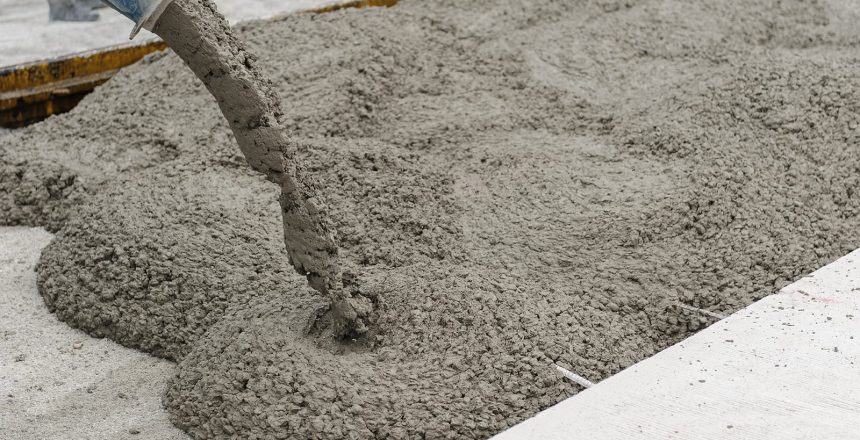Residential and Commercial Concrete Solutions: Customized to Your Job Requirements
Residential and Commercial Concrete Solutions: Customized to Your Job Requirements
Blog Article
Introducing the Eco-Friendly Advantages of Making Use Of Recycled Concrete in Sustainable Construction Practices
In the realm of sustainable construction techniques, the utilization of recycled concrete stands as an essential yet often underestimated source. Past its traditional applications, recycled concrete offers a myriad of environmentally friendly advantages that extend much past the confines of traditional building and construction products. From minimizing environmental impact to boosting cost-efficiency, the effects of integrating recycled concrete in lasting building techniques are considerable. This functional material not only addresses pressing environmental worries yet additionally provides a viable remedy to the difficulties faced by the construction sector at large.
Environmental Advantages
By including recycled concrete into building and construction methods, there is a substantial decrease in the need for brand-new raw materials, leading to preservation of natural sources. Additionally, the usage of recycled concrete diminishes the quantity of waste being sent to garbage dumps, thereby minimizing environmental contamination and reducing the pressure on landfill capabilities (Concrete).

In comparison, recycled concrete has a lower carbon impact as it decreases the need for new concrete manufacturing. Generally, the environmental advantages of using recycled concrete are significant and play an important duty in promoting eco-friendly building and construction methods.
Cost-Efficiency
When examining the utilization of recycled concrete in building and construction tasks,Achieving cost-efficiency is an extremely important consideration. Among the key advantages of making use of recycled concrete is its cost-effectiveness contrasted to conventional concrete. The manufacturing of recycled concrete involves less power and sources as it utilizes existing materials, reducing the general task costs dramatically. Additionally, the accessibility of recycled concrete in your area can better lower transport expenditures, making it an extra economical option for building jobs.
Additionally, using recycled concrete can bring about savings in landfill costs by diverting concrete waste from disposal sites. This not just reduces the ecological influence yet also removes the prices linked with waste elimination. In addition, the durability and efficiency of recycled concrete are comparable to standard concrete, making sure that cost financial savings do not compromise the quality of the construction.
Durability and Stamina
Thinking about the substantial cost-efficiency advantages of using recycled concrete, it is vital to examine its durability and stamina in construction applications. Recycled concrete deals similar, if not premium, resilience and stamina properties to typical concrete. With advancements in processing methods and quality control, recycled concrete can fulfill or surpass the efficiency requirements of standard concrete. The procedure of recycling concrete involves crushing, arranging, and screening old concrete to produce accumulations that can be utilized in brand-new building and construction projects. These recycled aggregates are capable of supplying acceptable compressive strength, toughness, and long-term performance.

Waste Reduction
Reliable waste decrease methods play an important duty in the sustainable use of resources within the construction market. Waste decrease is a vital benefit that contributes considerably to environmental conservation when it comes to utilizing recycled concrete. Standard building and construction approaches usually produce considerable amounts of waste, especially in the form of concrete rubble from click for more info demolition websites. By integrating recycled concrete right into construction tasks, this waste is repurposed and drawn away from land fills, reducing the overall ecological influence of building and construction activities.
Additionally, the use of recycled concrete can lead to cost savings for building projects, as it is frequently a lot more cost effective than sourcing and delivering brand-new materials - Concrete. In verdict, waste reduction via the utilization of recycled concrete is an essential part of sustainable building and construction techniques that profits both the setting and the building and construction market as a whole.
Power Conservation
When it comes to utilizing recycled concrete in building and construction, considerable energy savings are accomplished compared to typical concrete production. The procedure of creating recycled concrete includes reusing and crushing existing concrete products, which takes in much less energy than mining, processing, and transferring raw products for brand-new concrete production.
Final Thought
In conclusion, the usage of recycled concrete in sustainable construction practices provides countless ecological benefits, cost-efficiency, durability, strength, waste decrease, and energy conservation. By including recycled concrete right into building jobs, we can add to a more lasting and ecologically friendly future. It is necessary for click here for more info the construction sector to focus on the use of recycled products to help minimize the ecological influence of construction activities.
One of the essential benefits of utilizing recycled read this concrete is its cost-effectiveness contrasted to standard concrete.Moreover, the use of recycled concrete can lead to savings in garbage dump costs by diverting concrete waste from disposal websites. The sturdiness and performance of recycled concrete are equivalent to traditional concrete, making certain that expense financial savings do not jeopardize the quality of the building.
:max_bytes(150000):strip_icc()/in-depth-look-at-concrete-flooring-1314684-02-8fdb599f92a747ed94ef5b96110abfc1.jpg)
Report this page